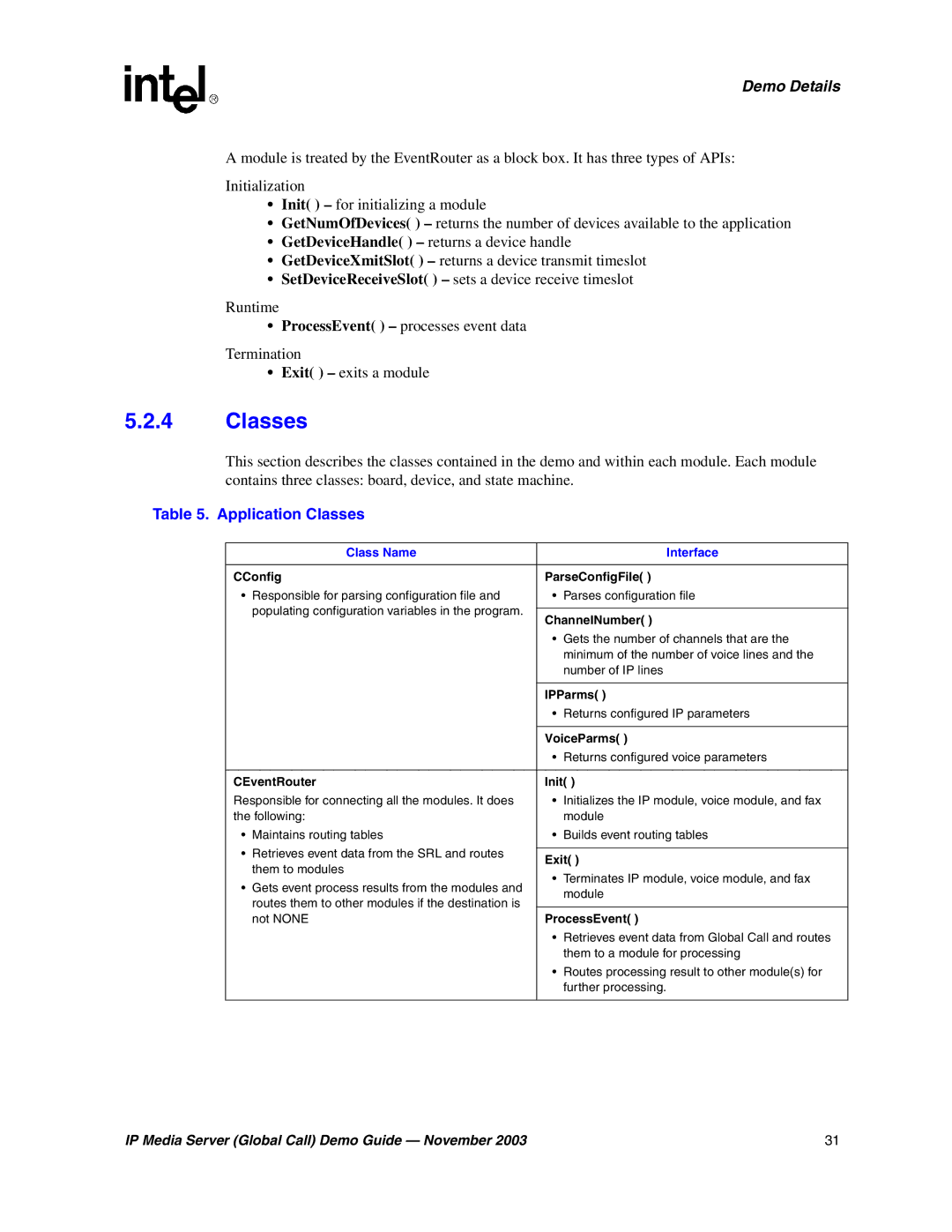Demo Details
A module is treated by the EventRouter as a block box. It has three types of APIs:
Initialization
•Init( ) – for initializing a module
•GetNumOfDevices( ) – returns the number of devices available to the application
•GetDeviceHandle( ) – returns a device handle
•GetDeviceXmitSlot( ) – returns a device transmit timeslot
•SetDeviceReceiveSlot( ) – sets a device receive timeslot
Runtime
•ProcessEvent( ) – processes event data
Termination
•Exit( ) – exits a module
5.2.4Classes
This section describes the classes contained in the demo and within each module. Each module contains three classes: board, device, and state machine.
Table 5. Application Classes
| Class Name |
| Interface | |
|
| |||
CConfig | ParseConfigFile( ) | |||
• | Responsible for parsing configuration file and | • | Parses configuration file | |
| populating configuration variables in the program. |
|
| |
| ChannelNumber( ) | |||
|
| |||
|
| • | Gets the number of channels that are the | |
|
|
| minimum of the number of voice lines and the | |
|
|
| number of IP lines | |
|
|
| ||
|
| IPParms( ) | ||
|
| • | Returns configured IP parameters | |
|
|
| ||
|
| VoiceParms( ) | ||
|
| • | Returns configured voice parameters | |
|
| |||
CEventRouter | Init( ) | |||
Responsible for connecting all the modules. It does | • | Initializes the IP module, voice module, and fax | ||
the following: |
| module | ||
• | Maintains routing tables | • | Builds event routing tables | |
• | Retrieves event data from the SRL and routes |
|
| |
Exit( ) | ||||
| them to modules | |||
| • | Terminates IP module, voice module, and fax | ||
• | Gets event process results from the modules and | |||
| module | |||
| routes them to other modules if the destination is |
| ||
|
|
| ||
| ProcessEvent( ) | |||
| not NONE | |||
|
| • | Retrieves event data from Global Call and routes | |
|
|
| them to a module for processing | |
|
| • | Routes processing result to other module(s) for | |
|
|
| further processing. | |
|
|
|
| |
IP Media Server (Global Call) Demo Guide — November 2003 | 31 |
